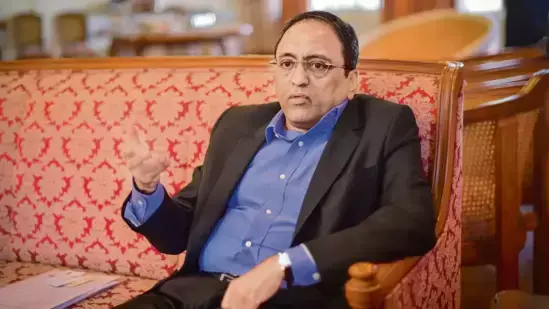
Title: If you ask an IT employee to come to office, he says ‘bye’: L&T Chairman
In a recent statement, L&T Chairman SN Subrahmanyan sparked controversy by remarking that IT employees would rather quit their jobs than work from the office. His comments were made during an interview, where he was discussing the changing work culture and the challenges faced by companies in retaining talent.
Subrahmanyan, who has been with Larsen & Toubro (L&T) for over three decades, recalled a conversation he had with his boss when he first joined the company in 1983. “My boss said, ‘if you’re from Chennai, you go to Delhi and work,'” he said. This was a common practice at the time, where employees would be transferred to different locations based on the company’s needs.
However, the situation has changed dramatically over the years. Today, Subrahmanyan believes that IT employees are more particular about their work arrangements and are not willing to compromise on their flexibility. “Today, if you ask an IT employee to come to the office and work, he says ‘bye’ (he resigns),” he stated.
Subrahmanyan’s remarks have been met with criticism, with many arguing that he is out of touch with the modern work culture. The rise of remote work has been driven by the increasing demand for flexibility and work-life balance. With the advancement of technology, it has become easier for employees to work from anywhere, at any time, and still be productive and effective.
Moreover, the IT industry is known for its high turnover rates, and many companies are struggling to retain their top talent. According to a recent survey, the average tenure of an IT professional in India is around 2-3 years. This is significantly lower than the tenure of professionals in other industries, and it highlights the importance of flexibility and work-life balance in the IT sector.
Subrahmanyan’s comments have also been seen as a reflection of the company’s culture and approach to employee management. L&T has traditionally been known for its conservative approach to work arrangements, and it has been slow to adopt changes in the work culture. The company has been criticized for its rigid policies, which can make it difficult for employees to balance their work and personal life.
However, it’s worth noting that Subrahmanyan’s comments may also be a reflection of the challenges faced by companies in the IT sector. The industry is highly competitive, and companies are constantly looking for ways to stay ahead of the competition. In this context, Subrahmanyan’s comments may be seen as a warning to IT employees to be more flexible and adaptable in their work arrangements.
In conclusion, Subrahmanyan’s remarks have sparked a debate about the changing work culture and the challenges faced by companies in retaining talent. While his comments may be seen as outdated, they also highlight the importance of flexibility and work-life balance in the IT sector. As the industry continues to evolve, it’s likely that we will see more companies adopting flexible work arrangements and recognizing the value of work-life balance.






